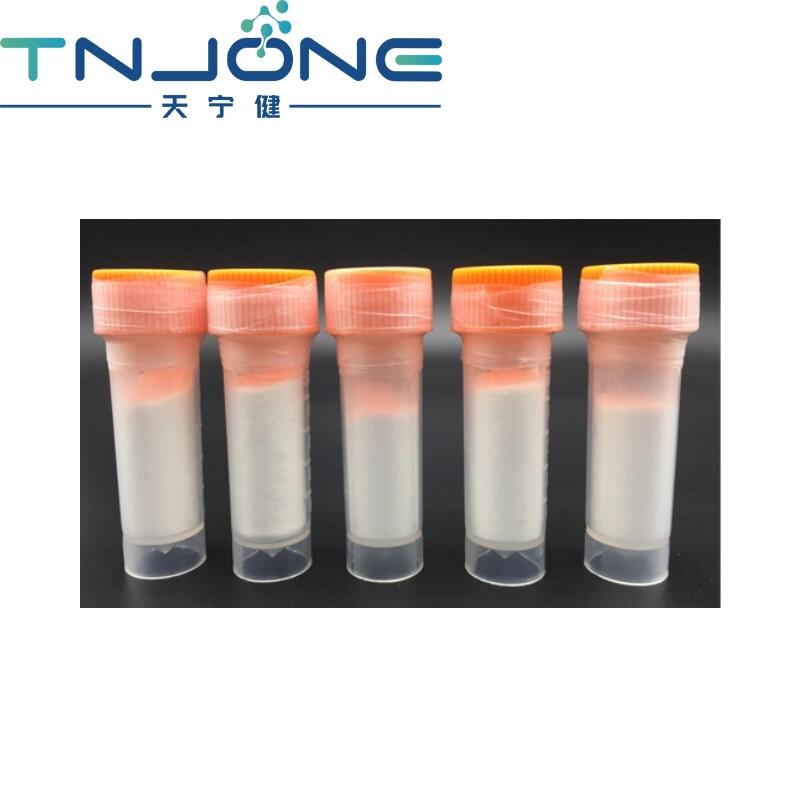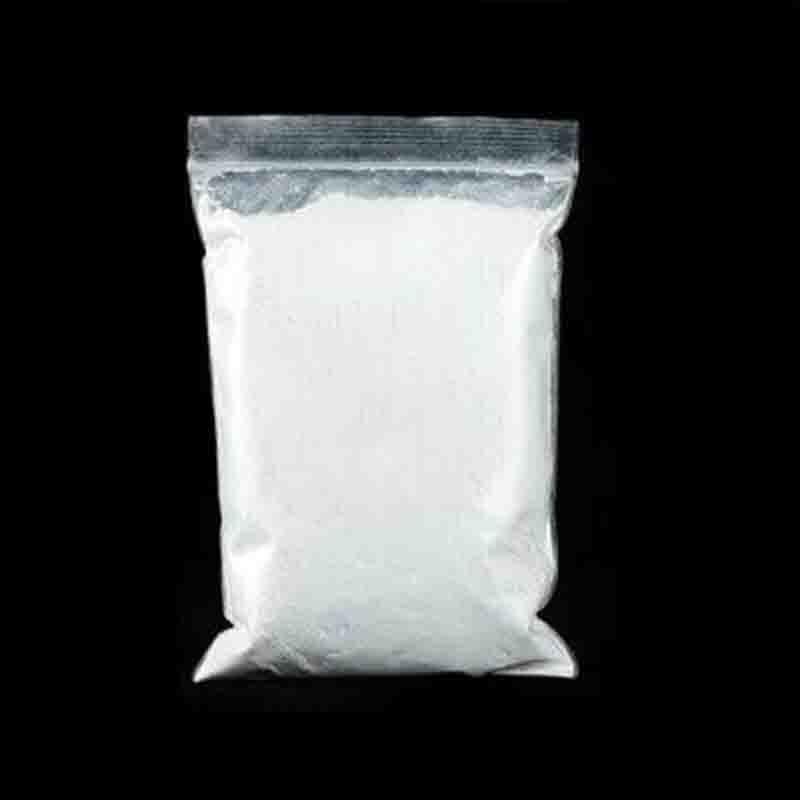-
Categories
-
Pharmaceutical Intermediates
-
Active Pharmaceutical Ingredients
-
Food Additives
- Industrial Coatings
- Agrochemicals
- Dyes and Pigments
- Surfactant
- Flavors and Fragrances
- Chemical Reagents
- Catalyst and Auxiliary
- Natural Products
- Inorganic Chemistry
-
Organic Chemistry
-
Biochemical Engineering
- Analytical Chemistry
-
Cosmetic Ingredient
- Water Treatment Chemical
-
Pharmaceutical Intermediates
Promotion
ECHEMI Mall
Wholesale
Weekly Price
Exhibition
News
-
Trade Service
Since the European Committee for the Treatment and Research of Multiple Sclerosis (ECTRIMS) and the European Society of Neurology (EAN) issued guidelines for the treatment of multiple sclerosis in 2018, many randomized controlled studies of new therapeutic drugs have been published.
The committee believes that these evidences should be sorted and analyzed.
The drug treatment guidelines are updated
.
Yesterday, the ECTRIMS Conference "ECTRIMS/EAN Special" introduced part of the updated guidelines
.
First, Dr.
Simón Cárdenas-robledo gave a speech and introduced an overview of the methodology for the development of guidelines1
.
The guidelines are designed to provide doctors with guidance in the process of treatment decision-making based on existing evidence
.
The GRADE methodology is used to evaluate the evidence, and the clinical questions are constructed according to the PICO principles
.
The clinical problem is divided into two parts: the core problem and the practical problem
.
The core questions cover 5 topics: the efficacy of disease-modifying drugs (DMD), early treatment decisions, disease/treatment response monitoring and treatment changes, treatment interruption and disease recurrence, pregnancy and breastfeeding; practical questions cover 3 topics: treatment safety and Surveillance, disease modification treatment (DMT) conversion strategy, long-acting DMTs
.
Next, Professor Xavier Montalban introduced some of the guidelines in the ECTRIMS/EAN Multiple Sclerosis Drug Treatment Guidelines updated in 20212
.
The recommendations in the guidelines will be a milestone in the management of MS disease in the next few years
.
Core Question Topic 1: Recommendations on the Efficacy of DMDs 1.
All DMDs should be applied by neurologists with MS expertise and in centers with sufficient infrastructure to provide: appropriate patient monitoring, comprehensive evaluation, and adverse drug reactions as early as possible Recommendations for detection and proper treatment capabilities 2.
Provide interferon or glatiramer acetate therapy for patients with clinically isolated syndrome (CIS) who are highly suggestive of MS, and patients who do not meet the diagnostic criteria for MS but have abnormal MRI lesions that suggest MS
.
Recommendation 3.
For relapsing MS, among the many moderate to high-efficiency treatment drugs (interferon β-1b, interferon β-1a [subcutaneous injection, intramuscular injection], peginterferon β-1a, glatiacetate Ray, teriflunomide, dimethyl fumarate, cladribine, fingolimod, natalizumab, alemtuzumab, orrelizumab, ofatumumab, rituximab Monoclonal antibodies, sinimod, ozanimod, ponesimod) need to consider the following factors when making the selection, and discuss with the patient: whether there is a potential disability progression disease severity, clinical and (or) radiological activities Patient characteristics and comorbid conditions.
Drug safety profile.
Drug accessibility.
Family planning.
Patient values and preferences.
Recommendations 3.
a) For patients with relapsing-remitting MS (RRMS), consider using interferon β-1b, interferon β-1a [Subcutaneous Injection, intramuscular injection], peginterferon β-1a, glatiramer acetate, teriflunomide, dimethyl fumarate, cladribine, fingolimod, ozanimod, ponesimod, During the treatment of natalizumab, alemtuzumab, orrelizumab, orfatulimumab, the disease activity and the safety and tolerability of the drug should be discussed with the patient
.
Recommendation 3.
b) For patients with secondary progressive MS (SPMS) with evidence of inflammatory activity (relapse and/or MRI activity), consider sinimod treatment
.
When considering other drugs for relapsing MS (as listed in Recommendation 3a), their efficacy, patient expectations, drug safety and tolerability should be considered
.
Recommendation 3.
c) For SPMS patients without evidence of inflammatory activity (relapse and/or MRI activity), especially in young patients and patients who have only recently begun to progress, consider using sinimod or anti-CD20 monoclonal antibody treatment , Should fully discuss with patients, and consider that there is not enough evidence to support their use in this situation, as well as the safety and tolerability of the drug
.
Recommendation 3.
d) For patients with active SPMS, when no other treatment options are available, mitoxanone treatment can be considered.
The efficacy of the drug needs to be fully discussed with the patient, especially the well-documented, potential safety issues and Drug tolerance
.
Recommendation 4.
For patients with primary progressive MS (PPMS), orrelizumab treatment may be considered, especially for patients with early and active (clinical and/or radiological) PPMS
.
Topic 2: Early treatment decision recommendations 7.
According to the disease activity (whether clinical or MRI activity) and patient characteristics, consider choosing a higher-efficiency DMD at an early stage
.
Topic 3: Disease/treatment response monitoring and treatment change recommendations 10.
For patients undergoing DMDs treatment, consider more effective drugs for disease activity (please refer to Recommendation 6 for recommendations related to disease activity evaluation after the guideline is issued) Topic 4: Treatment interruption And disease recurrence recommendations 12.
When discontinuing high-efficiency DMD treatment due to poor efficacy or risk of adverse events, consider starting another high-efficiency DMD, and consider the following factors: clinical and MRI disease activity before and during treatment of previous DMD Pharmacokinetics and bioactive disease activity recovery or rebound possibility suggestion 13.
For patients with stable disease (clinical and MRI evaluation), there are no safety or tolerability issues, and DMD treatment can be continued, taking into account the following patients Situation: Patient characteristics and comorbidities.
Drug safety, birth planning, patient values and preferences.
Topic 5: Pregnancy and breastfeeding recommendations.
14.
All women with pregnancy needs should be advised to plan their pregnancy in advance
.
Recommendation 15.
All women of childbearing age should be informed that, with the exception of glatiramer acetate and interferon, no other DMDs have been approved for use during pregnancy
.
Recommendation 16.
For women planning to become pregnant, consider glatiramer acetate and interferon.
If you consider continuing to use it during pregnancy, you need to assess the risks and benefits
.
The use of dimethyl fumarate can be considered until pregnancy is confirmed, and the use of dimethyl fumarate should be discontinued during pregnancy after assessing the risks and benefits
.
Recommendation 17.
For female patients who plan to become pregnant and have high disease activity, there are the following treatment options: consider receiving long-acting DMDs (alemtuzumab or cladribine), but at least an interval is required from the last administration to conception Anti-CD20 DMDs can be considered before pregnancy for 4 months and 6 months.
It is recommended to avoid pregnancy within 2-6 months after the last administration, and avoid continuing treatment after pregnancy is confirmed
.
If anti-CD20 monoclonal antibodies are used during pregnancy, the newborn’s B cell level should be checked, and live attenuated vaccines should be planned accordingly.
For patients receiving natalizumab treatment, consider during pregnancy if possible Use a 6-week extended dosing regimen to continue treatment until the end of the second trimester or up to 34 weeks if necessary, and resume treatment after delivery
.
For newborns exposed to natalizumab, hematological abnormalities and liver function should be checked after birth.
Recommendation 18.
According to the drug instructions, currently only interferon and ofatumumab are approved for lactation
.
Practice question topic 6: Treatment safety and monitoring recommendations 20.
When natalizumab is used for treatment, after a period of stabilization, consider switching to a 6-week interval dosing method to minimize progressive multifocal leukoencephalopathy (PML) Risk
.
Recommendation 21.
Consider using highly effective drugs including natalizumab to treat patients who need rapid treatment.
When discussing with patients, consider the PML risk of JC virus-positive patients (especially for natalizumab) and differences Delay time of efficacy of DMDs
.
Recommendation 24.
Ideally, the new crown vaccine should be given priority before starting immunosuppressive drug therapy to achieve the highest possible protection rate
.
Topic 7: Recommendations for long-acting DMTs 27.
When using long-acting drugs (alenduzumab and cladribine) to treat MS patients, if the disease develops before the treatment is completed (for example, between the first and second cycles) Activities need to wait until the completion of the two-cycle treatment plan, and then switch to other DMDs according to whether the disease has imaging or clinical activity or progress
.
Recommendation 28.
When the disease activity is not completely relieved or reappears after a period of stabilization, consider giving an additional course of alemtuzumab after the first two cycles, with at least one year interval between them.
The benefits and side effects should be weighed.
The balance between
.
Expert comment on expert profile Professor Huang Dehui, Chief Physician, Chief Physician, Neuroimmunology Sub-specialty, First Medical Center, PLA General Hospital
.
Served as Director of Neuro Intensive ICU and Emergency Neurology Department
.
Head of the multidisciplinary consultation center for outpatient neurological internal and external imaging
.
Mainly engaged in clinical and basic research on autoimmune diseases of the nervous system and difficult, acute and critical diseases
.
Member of the Neuroimmunology Group of the Neurology Branch of the Chinese Medical Association Standing Member of the Neuroimmunology Branch of the Chinese Society of Immunology Member of the Neuroimmunology Group of the Neurology Branch of the Chinese Physician Association 》The editorial board participated in the research of key subjects such as military key projects, Wu Jieping Fund, National High-Tech Research and Development Plan (863), National Science and Technology Support Plan (973), etc.
; and was awarded the "Mighty Tips for All Diseases" in the People's Liberation Army General Hospital
.
Write the "Chinese Expert Consensus on the Diagnosis and Treatment of Multiple Sclerosis" and "Guidelines for the Diagnosis and Treatment of Neuromyelitis Optician Spectrum Diseases"
.
In 2014, "Serial Research on Demyelination-Related Diseases" won the second prize of military scientific and technological achievements
.
In 2018, "Research on Tumor-like Demyelinating Lesions" won the second prize of Beijing Medical Science and Technology
.
The updated "2021 ECTRIMS/EAN Multiple Sclerosis Drug Treatment Guidelines" provides guidance on the core issues and practical issues that clinicians care about
.
In the past few years, the treatment drugs for MS have been continuously updated, and the treatment goals and treatment strategies have undergone corresponding changes
.
Pay more attention to the long-term treatment of MS, recommend the use of disease stratification treatment strategies for specific MS patients, and pay more attention to disease activities (whether clinical or MRI activities) and progress control "double compliance"
.
At the same time, closely monitor the safety indicators of patients' treatment, and choose a plan based on individual wishes
.
The treatment strategy emphasizes the importance of early and comprehensive compliance.
For DMD treatment options, especially early, high-efficiency, and safety have become the trend of future development
.
In addition, the strategies for the treatment of DMD during pregnancy and lactation have also been updated
.
In recent years, more DMT drugs recommended in European and American guidelines have or will soon enter China, such as S1P receptor modulators, anti-CD20 monoclonal antibodies, etc.
, providing more options for doctors and patients related to MS treatment
.
In terms of treatment concepts, China and the world are synchronized.
The Neuroimmunology Group of the Neurology Branch of the Chinese Medical Association has recently updated the "Guidelines for the Diagnosis and Treatment of Multiple Sclerosis in China" in a timely manner to provide authoritative guidance for the standardized diagnosis and treatment of MS in China
.
References: 1.
Cárdenas-Robledo S.
Update of the ECTRIMS/EAN Guidelines on the Treatment of Multiple SclerosisMethodological overview.
Presented at ECTRIMS 2021.
2.
Montalban X.
Update of the ECTRIMS/EAN Guidelines on the Treatment of Multiple Sclerosis Updated recommendations.
Presented at ECTRIMS 2021 .







